第64章 ITALY(4)
Unfortunately,in the hard weather,poor Calvert fell ill;and Sterling,along with his Art-studies,distinguished himself as a sick-nurse till his poor comrade got afoot again.His general impressions of the scene and what it held for him may be read in the following excerpts.The Letters are all dated _Rome_,and addressed to his Father or Mother:--"_December 21st_,1838.--Of Rome itself,as a whole,there are infinite things to be said,well worth saying;but I shall confine myself to two remarks:first,that while the Monuments and works of Art gain in wondrousness and significance by familiarity with them,the actual life of Rome,the Papacy and its pride,lose;and though one gets accustomed to Cardinals and Friars and Swiss Guards,and ragged beggars and the finery of London and Paris,all rolling on together,and sees how it is that they subsist in a sort of spurious unity,one loses all tendency to idealize the Metropolis and System of the Hierarchy into anything higher than a piece of showy stage-declamation,at bottom,in our day,thoroughly mean and prosaic.
My other remark is,that Rome,seen from the tower of the Capitol,from the Pincian or the Janiculum,is at this day one of the most beautiful spectacles which eyes ever beheld.The company of great domes rising from a mass of large and solid buildings,with a few stone-pines and scattered edifices on the outskirts;the broken bare Campagna all around;the Alban Hills not far,and the purple range of Sabine Mountains in the distance with a cope of snow;--this seen in the clear air,and the whole spiritualized by endless recollections,and a sense of the grave and lofty reality of human existence which has had this place for a main theatre,fills at once the eyes and heart more forcibly,and to me delightfully,than I can find words to say.""_January 22d_,1839.--The Modern Rome,Pope and all inclusive,are a shabby attempt at something adequate to fill the place of the old Commonwealth.It is easy enough to live among them,and there is much to amuse and even interest a spectator;but the native existence of the place is now thin and hollow,and there is a stamp of littleness,and childish poverty of taste,upon all the great Christian buildings I have seen here,--not excepting St.Peter's;which is crammed with bits of colored marble and gilding,and Gog-and-Magog colossal statues of saints (looking prodigiously small),and mosaics from the worst pictures in Rome;and has altogether,with most imposing size and lavish splendor,a tang of Guildhall finery about it that contrasts oddly with the melancholy vastness and simplicity of the Ancient Monuments,though these have not the Athenian elegance.I recur perpetually to the galleries of Sculpture in the Vatican,and to the Frescos of Raffael and Michael Angelo,of inexhaustible beauty and greatness,and to the general aspect of the City and the Country round it,as the most impressive scene on earth.But the Modern City,with its churches,palaces,priests and beggars,is far from sublime."Of about the same date,here is another paragraph worth inserting:
"Gladstone has three little agate crosses which he will give you for my little girls.Calvert bought them,as a present,for 'the bodies,'at Martigny in Switzerland,and I have had no earlier opportunity of sending them.Will you despatch them to Hastings when you have an opportunity?I have not yet seen Gladstone's _Church and State_;but as there is a copy in Rome,I hope soon to lay hands on it.I saw yesterday in the _Times_a furious,and I am sorry to say,most absurd attack on him and it,and the new Oxonian school.""_February 28th,1839_.--There is among the people plenty of squalid misery;though not nearly so much as,they say,exists in Ireland;and here there is a certain freedom and freshness of manners,a dash of Southern enjoyment in the condition of the meanest and most miserable.
There is,I suppose,as little as well can be of conscience or artificial cultivation of any kind;but there is not the affectation of a virtue which they do not possess,nor any feeling of being despised for the want of it;and where life generally is so inert,except as to its passions and material wants,there is not the bitter consciousness of having been beaten by the more prosperous,in a race which the greater number have never thought of running.Among the laboring poor of Rome,a bribe will buy a crime;but if common work procures enough for a day's food or idleness,ten times the sum will not induce them to toil on,as an English workman would,for the sake of rising in the world.Sixpence any day will put any of them at the top of the only tree they care for,--that on which grows the fruit of idleness.It is striking to see the way in which,in magnificent churches,the most ragged beggars kneel on the pavement before some favorite altar in the midst of well-dressed women and of gazing foreigners.Or sometimes you will see one with a child come in from the street where she has been begging,put herself in a corner,say a prayer (probably for the success of her petitions),and then return to beg again.There is wonderfully little of any moral strength connected with this devotion;but still it is better than nothing,and more than is often found among the men of the upper classes in Rome.
I believe the Clergy to be generally profligate,and the state of domestic morals as bad as it has ever been represented."--Or,in sudden contrast,take this other glance homeward;a Letter to his eldest child;in which kind of Letters,more than in any other,Sterling seems to me to excel.Readers recollect the hurricane in St.
Vincent;the hasty removal to a neighbor's house,and the birth of a son there,soon after.The boy has grown to some articulation,during these seven years;and his Father,from the new foreign scene of Priests and Dilettanti,thus addresses him:--"_To Master Edward C.Sterling,Hastings_.
"ROME,21st January,1839.